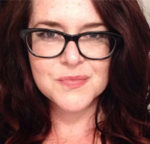 As many health care journalists have reported that they’re covering “all COVID, all the time” during the past two months, AHCJ freelancers offered their advice about the best ways to approach reporting and writing, as well as their own mental health while working on assignments.
As many health care journalists have reported that they’re covering “all COVID, all the time” during the past two months, AHCJ freelancers offered their advice about the best ways to approach reporting and writing, as well as their own mental health while working on assignments.
Overall, the advice highlights many of the principles that reporters already hold dear — choose your sources carefully, review the science behind published studies, and find ways to carve out personal time from a 24/7 news cycle.
Related to news coverage at this moment, the freelancers also suggested doing background research with new webcasts and press briefings online, finding story ideas in new communications and newsletters created by trusted sources, and creating a routine to stay on top of the most recent research.
Another piece of advice? Maybe it’s a good idea not to cover COVID-19 all the time.
Check out the advice that AHCJ freelancers gave by email, which is arranged by topic:
Pitching
Larry Beresford
(@larryberesford)

“Be persistent, if possible, without being obnoxious about it, which might be a fine line. When I get an assignment, which is usually on a specific and narrow aspect of practice, I say, ‘Yes Sir/Ma’am,’ and will take any assignments with gratitude for the foreseeable future while continuing to look for openings to do stories based on my enterprise, which are harder to land but not impossible. If I have an opportunity to work longer hours for the next couple of months at least, I will do it.”
Erin Blakemore
(@heroinebook)

“Actually, I’m making an effort not to cover all COVID, all the time! I feel like readers are burned out and that non-COVID pitches are getting a remarkable amount of traction with my editors and readers. People’s mileage may vary, though!”
Sheree Geyer
(@shereegeyer)

“Know your audience. It’s an old axiom but true. I pitched a story idea about delayed surgeries because of the virus and was told the idea was better suited to a sister publication for surgeons.”
Joanne Silberner
(@jsilberner)

“I’m both pitching and commissioning. Editors, too, are drinking from the fire hose — I at least am handling twice as many stories in half the time as I used to. I want people pitching to be kind and remember that I’m juggling a lot — I bless emails that are short and clear, and it’s especially important that reporters check to see what [the publication] has done before pitching. Some of the reporters I’m working with fail to tell me in the first sentence what story they’re referring to, and I read the rest of the email trying to figure it out. It’s really the same old recommendation for pitching and communicating, they’re just that much more important now.”
Story ideas and reporting
Amanda Loudin
(@MissZippy1)

“There are a million takes on COVID right now, so before you go after a lead, ensure it hasn’t already been covered. Also, look forward — where do you see the next steps in the pandemic? Yes, it’s somewhat speculative, but as quickly as the pandemic is evolving, it’s important to keep your focus down the road so you can provide editors with information they might not be getting elsewhere.”
Tara Haelle
(@tarahaelle)

“USE TWITTER. I have come across so many incredible threads from [epidemiologists and infectious disease] doctors. I get story ideas, I find sources quickly and easily, and I get a good read on new studies. Twitter has been utterly invaluable as a reporting resource during the pandemic, far more than I’d have guessed.”
Margaret Nicklas
(@margaretnicklas)
 “We are always advised to localize and we still need to do that in order to cover COVID-19, but this is a strange case where similar versions of the same things are happening all over the country and the world. If you keep up with what is happening broadly, it’s easier to find local stories. Also, with so much changing so quickly, I have been keeping my own records (of case counts) so I can compare what was happening a week ago or a month ago to now. It helps me get perspective.”
“We are always advised to localize and we still need to do that in order to cover COVID-19, but this is a strange case where similar versions of the same things are happening all over the country and the world. If you keep up with what is happening broadly, it’s easier to find local stories. Also, with so much changing so quickly, I have been keeping my own records (of case counts) so I can compare what was happening a week ago or a month ago to now. It helps me get perspective.”
Sources/experts
Elaine Howley
(@emkhowley)

“Find the right experts. I have found it difficult to secure experts for some of my smaller or less-well known clients, and that has been a bummer. But I know it’s because the experts who are most qualified are busy fulfilling other requests for larger, national outlets. But my advice is to keep looking for the right expertise and asking for the interview. I’ve managed to source a couple of great interviews with ER and pulmonary physicians via the American Lung Association and other nonprofit organizations that have experts in their stable they’re happy to introduce.”
Fran Kritz
(@fkritz)
“While the best advice, if it were possible, would be to grab on to a few infectious disease specialists and keep their cell phones on your palm, the truth is most are straddling research and in the wards. It’s not that they want to be hard to reach, but they often have a more important priority. Second best are the various spokespeople at the major medical centers and associations who can usually grab an expert.”
Doug Levy
(@SFDoug)

“It’s critically important to check the credentials of anyone who presents themselves as an expert. I’ve seen too many instances of people acting as if they are experts in infectious diseases or epidemiology when their expertise is more limited.”
Karen Weintraub
(@kweintraub)

“Be careful of whom you trust. A lot of statisticians and other scientists have been putting out models of diseases without being epidemiologists or infectious disease specialists. Trust the people who do this all the time, not the ones with a newfound interest.”
Other resources
Jennifer Larson
(@JenniferLarson)

“Check out the online newsletter MGH FLARE. It’s written by doctors at Mass General and gives a quick but thorough review of specific topics that have popped up in the news or social media. It’s a collaboration of the pulmonary and critical care divisions. Their mission is to ‘appraise the rapidly evolving literature on SARS-CoV-2 with a focus on critical care issues.’”
Kathleen Doheny
(@DohenyKathleen)

“Take advantage of webinars and other explainers that give you valuable background on the pandemic, even if you don’t have an assignment on that specific topic at the moment. The AHCJ webcast on covering preprint research is useful. Others on vaccines could be helpful as well.”
New science/studies
Serena Gordon
(@SerenaG1)

“Be extra careful when covering COVID prevention and treatments. I’ve been a health freelancer for 20 years, and I’ve never seen the science flying as fast and furious as it is now. Have your caveats at the ready — most of the studies we’re seeing are case reports, not randomized controlled trials, so if you’re reporting on a study of five people who improved after a treatment, be sure to say (or get a quote saying) that. Without a control group, you can’t know whether someone would have gotten better WITHOUT the treatment, too.”
Lola Butcher
(@LolaButcher)

“Use your lunch break to stay up-to-speed on COVID-19. Many organizations — the Alliance for Health Policy, Commonwealth Fund, National Academy of Medicine, JAMA and others — are hosting webcasts and livestreams about various aspects of COVID-19 weekly or even more frequently, and they have fantastic guests such as Dr. Anthony Fauci. The recordings are almost always posted for after-the-event viewing within 24 hours. Choose one to listen to in the background while you’re cooking, doing chores or completing other tasks. It’s an easy way to get story ideas and learn from top experts.”
Shawn Radcliffe
(@ShawnRadcliffe)

“One of the challenges of being a freelance writer is keeping up with new research on a topic, especially if you tend to cover many different topics rather than having a main beat. As freelancers, we also don’t get paid to do general research, so if a study isn’t directly related to a story we are writing, we have to read it on our own time. The rapid pace of COVID-19 developments has made it even more challenging to keep up. I tend to do a lot of skimming — quickly looking at new studies and news stories and bookmarking them (with Trello and Zotero) so I can find them later. It’s important to find a system that works for your needs, but here are some things that I have found helpful in keeping up with the research:
- Subscribe to embargoed email alerts for the major journals, along with the news release services EurekAlert and Newswise. I also receive many press release emails directly from universities. These all go into one folder in my email so I can skim them when I have time. I also automatically flag emails as COVID-related. Right now, these are the ones I read more regularly.
- I check PubMed, medRxiv and bioRxiv for new COVID-related studies, mostly just skimming and bookmarking ones of interest for later.
- I read COVID-19 news from other science writers, ones that I trust and who provide in-depth coverage. These are a great way to quickly catch up on what’s been happening.
- I check Google News every day, in case there’s a development that I missed.
- I follow many doctors and scientists on Twitter who offer their own take on the latest COVID-19 research. Some of these I have interviewed before. It’s like doing mini-interviews with researchers every time I check my news feed.”
Self-care
Andrea King Collier
(@andreacollier)

“It is important not to get sucked into the undertow of a 24-hour changing news story. Give yourself some balance. And take time to prepare for the time when this won’t be the only story people want. If you want to do more stories, look in your own backyard. Everybody has been impacted in some way, from deaths to health disparities.”
Emily Sohn
(@tidepoolsinc)
“Take a break every now and then. COVID stories tend to have really tight deadlines and everything is changing around you constantly (this was especially true in the beginning), so each story feels like a race.

“It’s exhausting and emotionally draining, and I’m finding that sometimes I need to step away for a day or more before jumping back in. On the flip side, it feels good to be doing something that feels important and relevant during this time.”
Do you have more tips for your fellow writers and editors? Leave some comments to share your advice.









